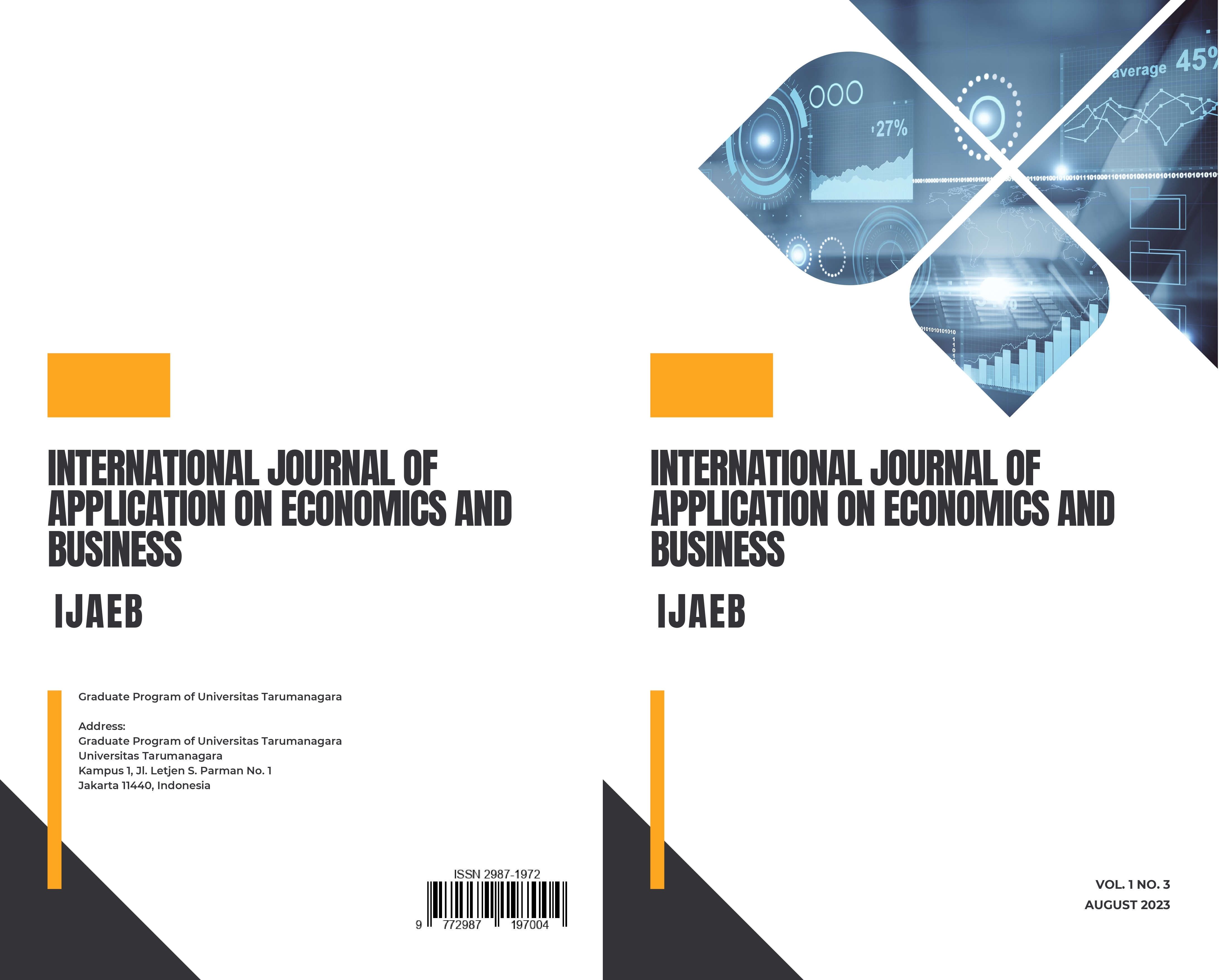PROTECTION OF CAPITAL MARKET RETAIL INVESTOR INTERESTS AGAINST DUAL CLASS VOTING SYSTEMS
Main Article Content
Abstract
The technology company GoTo has listed its share securities on the Indonesian capital market. GoTo has listed shares with a series or Multiple Voting Shares (MVS) scheme. The Financial Services Authority (OJK) has issued POJK, which regulates MVS. MVS gives rise to shares with voting rights that are different from other shares. This system is known as the dual-class voting system (DCVS). This study aims to discuss how to protect the interests of retail investors who have investments in companies that have MVS. This research uses legal normative. This study concludes that MVS must have a specific validity period, except State-Owned Enterprises (BUMN). The government must own SOEs that influence many people's lives with dual-colored shares. These MVS shares do not have voting rights but still, have the advantage of dividends. The purpose of MVS is for shareholders to protect the company's long-term interests. The government owns Dwiwarna shares intending to safeguard the interests of the national economy. MVS or DCVS affects the long-term running of the company's business to remain appropriate and avoid a hostile takeover.
Article Details

This work is licensed under a Creative Commons Attribution-NonCommercial-ShareAlike 4.0 International License.
This journal provides immediate open access to its content on the principle that making research freely available to the public supports a greater global exchange of knowledge.
IJAEB by Graduate Program of Universitas Tarumanagara is licensed under a Creative Commons Attribution-NonCommercial-ShareAlike 4.0 International License.. Permissions beyond the scope of this license may be available at https://journal.untar.ac.id/index.php/ijaeb
References
S. Sidik, “Demi IPO GoTo dkk, Bos OJK Godok Aturan Multi Voting Share.” 2021.
R. N. Mulyana, “Ada Skema Greenshoe dan Hak Suara Multipel di IPO GoTo, Begini Penjelasannya.” 2022.
A. Suryahadi, “OJK terbitkan peraturan saham dengan hak suara multiple (SHSM),” 2021. 2021.
I. F. Ramadhansari, “Lindungi Investor Saham, OJK Atur MVS Hanya Berlaku 10 Tahun.” 2021.
D. H. Forddanta, “Jangan Cemas, Pemegang Saham GoTo Kena Gembok Setelah IPO.” 2022.
P. Gumilar, “OJK Terbitkan Aturan Multiple Voting Share (MVS), Karpet Merah IPO GoTo dkk.” 2021.
A. Suryahadi, “OJK Terbitkan Peraturan Saham Dengan Hak Suara Multiple (SHSM).” 2021.
P. I. Ramadhani, “Menimbang Aturan Multiple Voting Share untuk Emiten dan Investor.” 2021.
S. Peter and P. M. D. Rasanjani, “Explaining the price gap between voting shares and non-voting shares,” Proc. Int. Conf. Ind. Eng. Oper. Manag., 2020.
M. M. Sawwaf, “Research Proposal : ‘ Are Shareholders Adequately Compensated for Investing in Restricted Voting Shares of a Family Firm ?,’” Henley Bus. Sch. Univ. Read., 2018.
E. C. Sagala and W. Suryadono, “Penyelesaian Hukum Terhadap Pemegang Saham Perseroan Terbatas Yang Belum Setor Modal Dasar,” Pap. Knowl. . Towar. a Media Hist. Doc., pp. 1–24, 2014.
R. S. Nugroho, “Mengenal Saham Seri A dan B, Apa Perbedaannya?” 2022.
R. A. K. Dewi, “Akibat Transformasi Saham pada Holdingisasi BUMN Migas Terhadap Pengendalian PT. PGN Tbk,” Jurist-Diction, vol. 2, no. 4, pp. 1425–1440, 2019.
S. Sidik, “Pemerintah Bakal Suntik BSI Pakai Saham Dwiwarna.” 2022.
B. T. Cahya and N. A. Kusuma, “Pengaruh Motivasi dan Kemajuan Teknologi Terhadap Minat Investasi Saham,” J. Ilmu Ekon. dan Keislam., vol. 7, no. 2, pp. 192–207, 2019.
Q. R. Siregar and S. Farisi, “Pengaruh Return On Assets Dan Earning Per Share Terhadap Harga Saham,” Maneggio J. Ilm. Magister Manaj., vol. 1, no. 1, pp. 81–89, 2018.
M. Mulyana, L. Hidayat, and R. Puspitasari, “Mengukur Pengetahuan Investasi Para Mahasiswa Untuk Pengembangan Galeri Investasi Perguruan Tinggi,” JAS-PT J. Anal. Sist. Pendidik. Tinggi, vol. 3, no. 1, p. 31, 2019.
M. A. Menajang, “Analisa Yuridis Fungsi Saham Dalam Badan Usaha Perseroan Terbatas Menurut Undang Undang Nomor 40 Tahun 2007 Tentang Perseroan Terbatas,” Lex Priv., vol. 8, no. 1, pp. 13–21, 2020.
K. Niehoff and P. Laskowski, “Price Differences between Voting and Non-Voting Shares in Crisis and Boom,” Manag. Int. Manag. Int., vol. 23, pp. 64–84, 2022.
P. H. Edelman, W. Jiang, and R. S. Thomas, “Will tenure voting give corporate managers lifetime tenure?,” Tex. Law Rev., vol. 97, pp. 991–1029, 2019.
S. Syafrida, P. E. Latumenten, and W. Suryandono, “Benturan Kepentingan Oleh Pemegang Saham Mayoritas Yang Diangkat Sebagai Direktur Utama Perseroan Terbatas Tertutup (Analisa Akta Anggaran Dasar PT ARS),” Indones. Notary, vol. 1, no. 1, pp. 1–46, 2009.
M. Becht, Y. Kamisarenka, and A. Pajuste, “Loyalty shares with tenure voting: Does the default rule matter? evidence from the Loi florange experiment,” ECGI, vol. 63, no. 3, pp. 473–499, 2020.
C. Van der Elst, “Shareholder Engagement and Shareholder Voting Modes: Two of a Different Kind,” ECGI, 2019.
C. van der Elst, “Aligning shareholder voting and shareholder engagement,” Gov. art aligning Interes., pp. 59–74, 2022.
A. Prayoga and Muskibah, “Perlindungan Hukum Terhadap Pemegang Saham Minoritas Atas Akuisisi Perseroan Terbatas,” Zaaken J. Civl Bus. Law, vol. 1, no. 1, pp. 254–270, 2020.
S. Johan and A. Ariawan, “Consumer protection in financial institutions,” Leg. J. Ilm. Huk., vol. 29, no. 2, pp. 173–183, 2021.
S. Johan and A. Ariawan, “Keterbukaan Informasi UU Pasar Modal Menciptakan Asymmetric Information Dan Semi Strong Form,” Masal. Huk., vol. 50, no. 1, pp. 106–118, 2021.
M. P. Marzuki, Penelitian Hukum: Edisi Revisi, Revisi. Jakarta: Kencana Prenada Media Grup, 2017.
S. Johan, “Knowing Company Secrets Through Employee Posts on Social Media,” Diponegoro Law Rev., vol. 6, no. 2, pp. 203–216, 2021.



